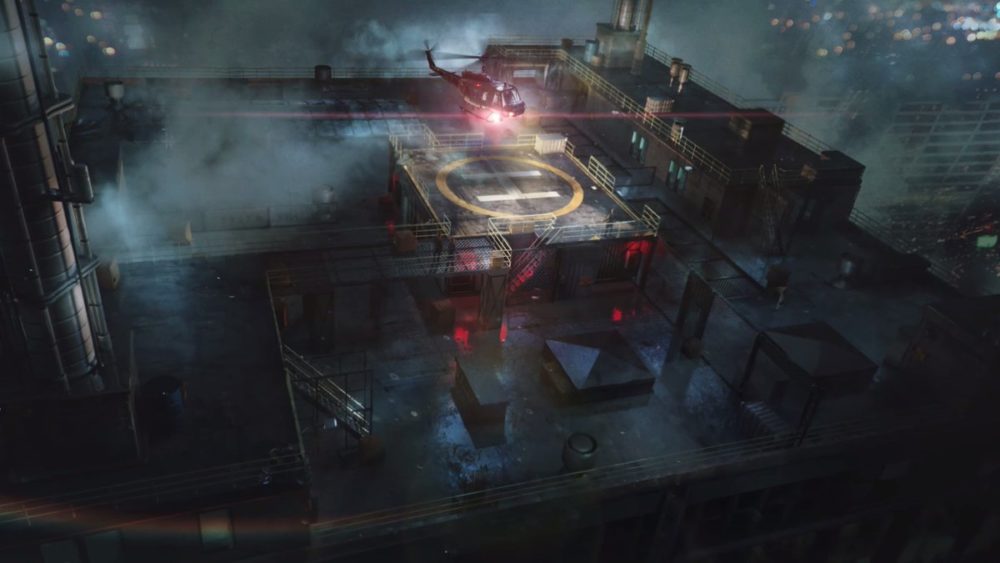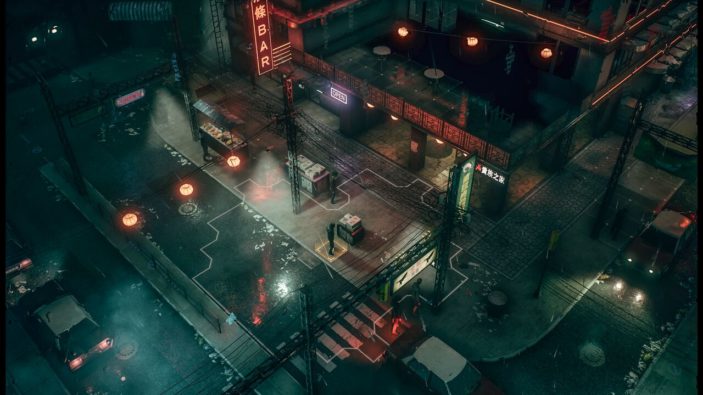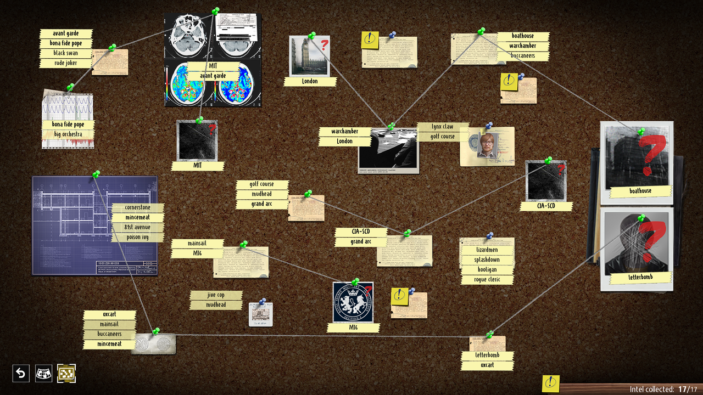
Phantom Doctrine is a turn-based strategy game set during the Cold War. You play as either a retired KGB, rogue CIA, or an unlockable secret identity, in charge of a secret operation to stop a world-ending conspiracy. Basically, it’s X-COM set in the Cold War, but with an enticing spy twist. The game itself has a lot of elements: Between missions, you send your agents on a variety of tasks, from researching upgrades, and visits to the hospital, to meeting with agents and tailing leads. With so many elements, it’s no surprise that the single-player campaign contains over 40 hours of content. Though it may take a solid five to six hours just to figure out what’s actually going on. To say the tutorial is lacklustre is an understatement. While it teaches you how to undertake a mission, it doesn’t teach you the important aspect of the game itself: that sneaking is key; and with so many different individual skills I feel it makes more sense to spread the tutorial out as you unlock certain skills and abilities along the way.
Phantom Doctrine is unforgiving. One mistake or hasty decision-making could end a mission you’ve spent ages on in seconds. For the hardcore strategists out there, this might be perfect. But currently, the game feels unbalanced. Playing on medium difficulty, I found myself failing the first few missions. With the maps being so big, and the AI taking so long to make their moves, you find yourself taking risks just to make it go faster. Oftentimes, you’ll begin a mission unnecessarily on the other side of the map, where it then takes a minimum of 10 moves to reach the target. When this happens, to speed up the process you accidentally sneak into a room full of enemy agents, alerting the entire map of your presence. They then call reinforcements, which basically means your mission is now doomed to fail, especially with the incredible line of site the enemy agents seem to have. Phantom Doctrine rewards patience and planning, but with hard to read text, difficult navigation, and long AI turns, it makes the game a chore to stick with.

Apart from missions, you spend a lot of time in the base, gathering intel and researching secret files you pick up in missions. The tutorial for this section is really minimal, and you spend most of it figuring it all out for yourself. I do really enjoy the reading of the secret files and linking of clues. I feel that uncovering the conspiracies and connecting the dots in this game could provide ample motivation to stick with it. The immersion is ruined though whenever a cutscene is encountered. These cutscenes are the absolute let-down for me, in a game that otherwise looks brilliant and plays quite well. I don’t know if the cutscenes were an afterthought and thrown in to add to the story, but I feel the game would honestly have been better without them. It almost feels like a different game jumping from the stiff movements of the cutscenes and the flowing movement of the actual gameplay. Meanwhile, the take-down and action scenes of the game look and feel amazing to perform.

The gameplay and navigation of Phantom Doctrine overall seems better suited for PC. When you’re sitting closer to the screen, the issues of the small text and tricky navigation might dissipate, allowing for a much more accessible game. The good news is that the developers are hard at work and listening to the feedback from players, and actually working on patches, of which they’ve already released five. They seem invested in making this a great game, and with that, I’m really excited to see where this game goes.
Another great aspect of Phantom Doctrine is the vast amount of customisation available. The customisation of your main character has an overwhelming amount of choice. Both male and female agent options have over 20 photo options, and then an ability to customise further the clothes and look. There is an incredible amount of diversity in this, which is really welcoming. Speaking of choice, there are also many choices to make in who to send on certain missions, which agents to send to gather intelligence, and which ones should stay behind. To say the least, Phantom Doctrine is strategy-rich, and because of its difficulty, successfully completing missions can feel like a huge accomplishment. I just wish they’d ease you more gently into it, help you learn the game and your options, to allow you to really appreciate the game in all its complexities.
Overall, I feel that Phantom Doctrine might be a gem for the die-hard strategists out there. With both hard mode and a hardcore Ironman mode, there’s a lot of replayability and challenge for even the best of the best. For the casual gamer though, it might feel a little too much like being taught how to doggy paddle and then being thrown straight into the deep end. If the developers continue to work on balancing out the game, or introduce gradual steps to ease players into it, it could become a well-rounded essential in the strategy catalogues.
![]()
![]()
![]()
![]()
![]()
THREE AND A HALF STARS OUT OF FIVE
Highlights: Really expansive, strategy-rich, spy theme
Lowlights: Basic tutorial, unbalanced difficulty
Developer: CreativeForge Games
Publisher: Good Shepherd Entertainment
Platforms: PC, GOG, Xbox One, PS4
Reviewed on a PS4 using a retail code provided by the publisher
